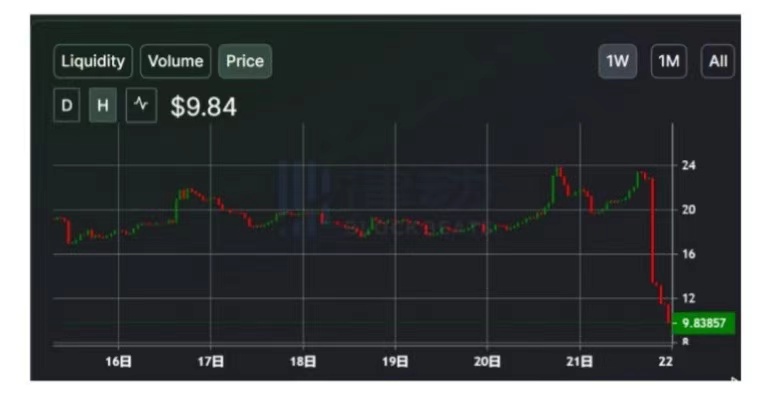On November 21, a vulnerability in the DeFi project Pickle Finance was exploited by attackers, resulting in a loss of nearly $20 million in DAI. Affected by this news, the Pickle Finance token was nearly halved within 24 hours. I believe everyone is familiar with similar news. As an open, permissionless network, the risks brought about by the use of decentralized applications and smart contracts will be exposed more and more. With the continuous growth of DeFi, the total value locked (TVL) is constantly increasing, and the value accumulation of risk loss is getting bigger and bigger. As the most conventional means of risk control, insurance is considered to be the most promising segment of DeFi finance. This is full of opportunities for UNION, a project focusing on DeFi insurance.

It is reported that related DeFi insurance projects have started Pickle Finance compensation voting. DeFi insurance has helped Pickle Finance in a timely manner, which may be a blessing in misfortune. But how much loss can actually be recovered, how to confirm the scope of claims, and whether the claims can actually be successful are all question marks. In previous cases, the proportion of cases where DeFi insurance has actually successfully settled claims is still very low. These practical problems are the current dilemma of DeFi insurance.
In real life, we have learned to consciously spend thousands of dollars on car insurance, hundreds of dollars on critical illness insurance, and dozens of dollars on accident insurance... Traditional insurance has penetrated into all aspects of life, but we still face various unexpected situations The embarrassment that happened: Some people tried every means to take advantage of the loopholes to cheat the insurance, some people found out that they were not covered by the insurance claim after an accident happened, and some people thought it was difficult to obtain evidence for the claim and the process was cumbersome...
Traditional insurance is currently unable to reach the digital currency field due to technical barriers, but there is a lot of overlap between the two. There are even more insurance needs in the field of digital currency. Here is a dark forest: high risk, many types of risks, and high probability of occurrence. From the perspective of risk management principles, we should control these risks. Therefore, DeFi insurance will face more difficulties than traditional insurance, and only by solving these difficulties can we occupy the blue ocean of DeFi insurance. Existing DeFi insurance projects mainly focus on mutual aid and financial derivatives, and their business scope is relatively limited. Union has been focusing on the research of various risks in the DeFi field, trying to find a better DeFi insurance solution.
Existing DeFi insurance protocols can only gradually address basic DeFi risks. This obviously cannot meet the development and ever-changing complex risks faced by DeFi. For example, Nexus Mutual provides freely selectable smart contracts, but has no bundling protection and does not provide a liquid secondary market. Therefore, Nexus Mutual does not provide insurance coverage in the face of complex arbitrage behaviors using loopholes, and this arbitrage behavior can be called a high-probability risk in the digital currency field. The need to increase insurance coverage is urgent, and UNION will meet this challenge head-on. The UNION platform is designed as a crucible for scalable protection products, covering the technology stack and various economic risks faced by DeFi platforms. UNION's modular framework provides DeFi users with the option to choose which asset protection ideology to subscribe to.
Through bundling protection, including vulnerability exposure, gas fee, smart contract, and even layer one risk, UNION can achieve three major advantages compared with projects of the same theme:
1. Provide a secondary market
2. Decentralized protection without KYC
3. Reduced collateral requirements and optimal coverage pricing
The only way to adequately address a variety of complex risks is through bundled asset protection, including technical, economic, and user-driven risk assessments, the aim of which is to provide various insurance options based on the user's risk appetite. The needs of users are multifaceted, and insurance coverage should be a targeted combination. UNION will carry out in-depth protection and classification of existing assets within the scope of different asset protection.
UNION will provide a series of structured risk products, including supporting claims for exploits, and addressing related smart contract risks between borrowing/lending agreement combinations in DeFi. Furthermore, this coverage has no barriers to entry and protects user assets in the way DeFi is popular. Using a familiar way will greatly reduce the user's education costs.
Only making products that are beneficial to oneself and ignoring user needs in order to avoid risks is a manifestation of incompetence. A good DeFi insurance project requires not only ability, but also courage to bundle user interests with itself to form a more A strong security alliance is the confidence and confidence of UNION.